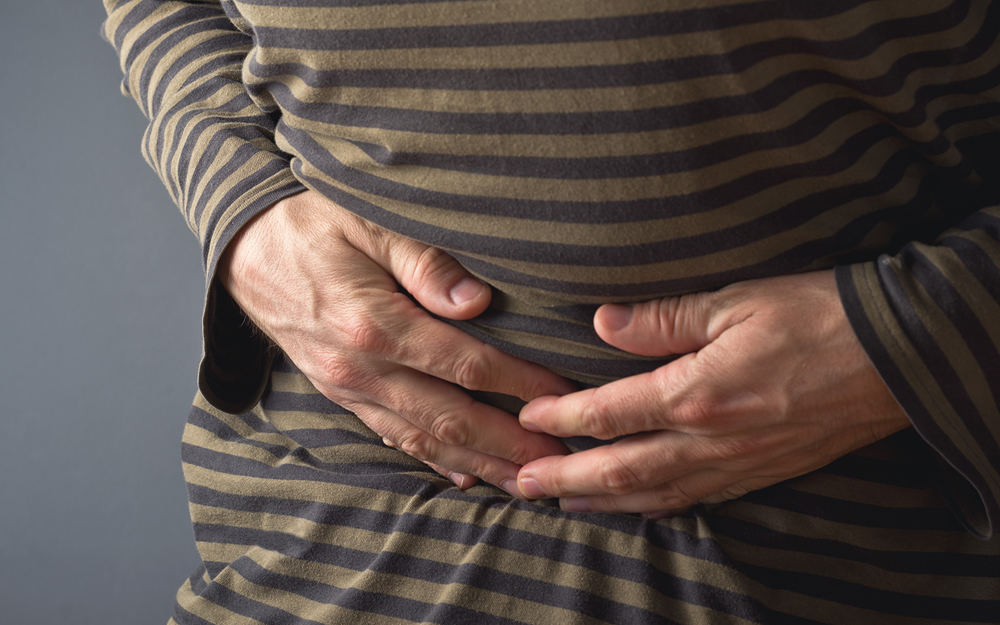Is Intermittent Fasting Healthy?
Date
November 25, 2019
Credits

Date
November 25, 2019
Credits
Medical providers featured in this article
In Brief
{{cta-block}}
There's been a lot of chatter about intermittent fasting—with many people incorporating eating and fasting windows into their diets in search of weight loss, better gut health, longevity, and more.
But does it actually work?
We chatted with Cedars-Sinai researcher Suzanne Devkota, PhD, to learn more.
"If you do it correctly, it's fantastic for your metabolism."
What is intermittent fasting?
Suzanne Devkota: There are many different ways to do it.
At a high level, it's the removal of food—which could be a 24-hour period of just ingesting liquids, for example. It could also be a dramatic caloric reduction for a time period, such as lowering your intake from 2,000 to 500 calories.
The intermittent part means that you do that for a day, and then the next day you go back to eating normally. You continue alternating between the fasting and non-fasting state at your predetermined interval.
What are the benefits of intermittent fasting?
SD: There's quite a lot of literature on caloric reduction in the field of aging and longevity. The most compelling data on caloric restriction has come from mostly rodent models and C. elegans models—worm models—where they've shown that periods of food withdrawal dramatically increase the lifespan of mice and the C. elegans worms.
Intermittent fasting started as an easier way to do caloric restriction with the same health benefit since there's data suggesting that periods of intermittent fasting can improve markers of longevity and reduce markers of aging.
What have you been researching?
SD: In the Devkota Lab at Cedars-Sinai, we're looking at this from the gut perspective—what does it do to your GI tract and the microbiome?
We've done studies looking at the effects of doing a single fast by looking at changes in the gut microbiome (the collection of microscopic organisms—including bacteria, fungi and viruses—that lives in our bodies) and markers of inflammation in the gut in mice.
We also studied healthy humans to look at the gut microbiome to see how it changes with 2 fasts per week. At the 12-16 hour mark, we saw a dramatic shift in the gut microbiome population after fasting for that period.
Certain bacteria are super responsive to fasting, and those tend to be beneficial bacteria. The concept is that with intermittent fasting, you could permanently grow those bacteria and experience the associated benefits.
How do I know if intermittent fasting is right for me?
SD: I think it's right for everybody, frankly.
The only situation I can think of where it wouldn't be beneficial would be if you're in a malnourished state—for example a cancer patient with the chronic weight loss that can happen with chemotherapy.
If you have trouble putting on weight, you'll want to avoid fasting. With intermittent fasting, you definitely lose weight—it's a very effective weight-loss strategy.
Is intermittent fasting bad for my metabolism?
SD: If you do it correctly, it's fantastic for your metabolism.
With intermittent fasting, one of the reasons it works so well for weight loss is because you introduce this caloric deficit during your week that's pretty profound, but your body never switches into starvation mode because the next day you're eating normally.
Can I exercise while fasting?
SD: Yes, absolutely.
I practice intermittent fasting myself and I've found that once you get used to it and it gets into a pattern, you find that you have more energy on your fasting days.
Will I be tired while fasting?
SD: There's no question that the first few rounds that you do—you'll be more tired because your body is not used to subsisting on less food.
Because of that, I don't recommend starting when you've got a big deadline or stressful event in your life. But I do advise people to stick through it because you come out of it with more energy once the body gets used to it.
Where do I start?
SD: The most popular protocols are the 5/2 diet and the 16-hour fast.
- The 5/2 diet is fasting for 2 non-consecutive days of the week and eating normally the other 5. While fasting, you're consuming 500-600 calories.
- The 16-hour fast is simply fasting for 16 hours straight, which is easier to do when combining with your sleeping window.
There's a lot of materials and strategies out there to help explain more in detail, and there are many other versions than these as well. It's about finding what's right for you.
Are there specific foods that I need to focus on?
SD: Strategically, you want to feel as full as you can with 500-600 calories, so that's going to be a lot of high-fiber food like salads and raw vegetables.
You technically could eat anything that falls within your calorie window, but making healthier choices will help you feel full longer.
Read more about Suzanne Devkota, PhD, in Discoveries: She's Got Guts





